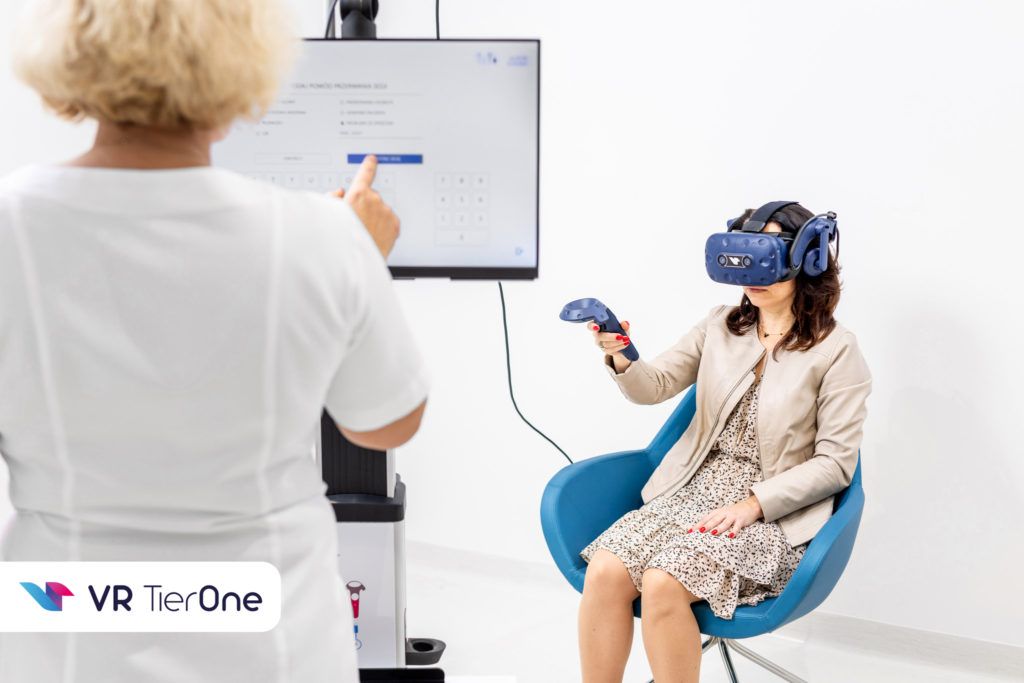Brain fog, also referred to as clouding of consciousness, is not a disease entity, but has recently aroused the interest of patients. This non-medical term gained publicity as a complication of the COVID-19 viral infectious disease, which has spread worldwide. The severe cognitive impairment known as brain fog occurs in the course of many other diseases and forms a set of symptoms associated with changes in the way our brain functions. These changes may result from inflammatory processes in the course of infectious and autoimmune diseases. The brain fog experience could be triggered by our immune system responding to the release of inflammatory molecules that are toxic to the brain, or by the body’s mistaken attack on nerve cells.
It is not only about COVID-19
There are many causes of brain fog and they can be combined. Clouded thinking can occur due to diseases or our negligence, e.g. lack of sleep, dehydration, nutritional deficiencies, chronic stress, excess intake of stimulants, e.g. coffee and alcohol. Deterioration of cognitive functions is also noted in physiological states in pregnant or menopausal women, when fluctuations in their hormone levels may impair memory, attention and thinking. The decrease in estrogen levels adversely affects the cognitive functions and reduces the protection against the pro-inflammatory response. Brain fog is a symptom of many diseases and factors that disrupt the secretion of neurotransmitters that are crucial for the proper functioning of the brain, such as: serotonin, dopamine, acetylcholine, gamma-aminobutyric acid (GABA). Neurotransmitters interact with each other, and their abnormal levels give us a feeling of brain fog. Cognitive impairment may occur due to inflammation that lowers the conductivity of the brain, the subjective symptom of which will be brain fog. Inflammation is dangerous for the sensitive tissue of the brain, and the destruction mechanism of the brain is caused by the production of inflammatory cytokines. In a brain affected by inflammatory process the frequency of the pulses decreases. Uncontrolled and rapid inflammation is caused by a dysfunction of the immune system. In COVID-19 the strong response of immune system to the SARS-CoV-2 infection causes rapid inflammation that damages tissues. Even a small amount of the virus can induce a cytokine storm, which can cause serious brain damage. After suffering from coronavirus disease, patients experience disorders of the nervous system, including difficulty concentrating and a decrease in thinking speed, known as post-COViD fog.

Clouded consciousness often affects people struggling with autoimmune diseases. Deterioration of intellectual performance, issues with memory and concentration are observed in the course of Hashimoto’s disease – autoimmune thyroiditis. In the course of this thyroid-destroying disease, the brain is also degraded due to parallel inflammatory condition in both organs. Hypothyroidism adversely affects the efficiency of the brain, as the proper maturation and functioning of the brain relies on its hormones. Among the specific symptoms in the course of Hashimoto’s disease, literature lists deterioration of verbal memory and the ability to focus attention, and a decrease in perception.

In coeliac autoimmune disease that is the coeliac disease, gluten is toxic to the patient’s body. Gluten intolerance can manifest itself through neurological symptoms. In some patients with coeliac disease, gluten causes inflammatory processes in the body and the appearance of symptoms of brain fog. After switching to a gluten-free diet, patients experience improvement and resolution of neurological disorders. Brain fog is also observed in other autoimmune diseases, such as systemic lupus erythematosus, multiple sclerosis, in diabetic and hepatic encephalopathies, and in the course of parasitic and bacterial infections. When struggling with the problem of brain fog of unknown etiology, it is always worth to test for Lyme disease. This tick-borne zoonotic disease is caused by the spirochetes of the genus Borellia. Lyme disease can be difficult to diagnose, and brain fog can be a symptom of this disease. The bacterium has the ability to penetrate the blood-brain barrier, and therefore the Lyme disease can develop into its neurological form, giving symptoms related to the infiltration of the central nervous system. Cognitive dysfunctions and distortions are common in depression, and it also happensthat depression conceals itself behind the mask of brain fog. Mental fog can also result from hypoxia of the brain tissues, e.g. in the course of anemia and low levels of oxygen-transporting haemoglobin. In case of hypoxia, the brain suffers and neurological symptoms develop quickly.
Cloudy consciousness
Brain fog is a term that covers a wide range of symptoms that may vary in severity and duration. Fog may appear as a delayed symptom of illness. As a rule, brain fog does not worsen as it does in serious dementia diseases such as the Alzheimer’s disease. People who have experienced brain fog most often indicate subjective feelings that bother them, such as:
- Excessive sleepiness and lethargy,
- Excessive fatigue when taking activities that increase the activity of the brain,
- Confusion concerning the time and place,
- Issues with concentration in tasks requiring increased concentration,
- Trouble with memory both verbal and visual,
- Slow thinking, causing problems in planning and decision making,
- Problems with formulating thoughts, which makes the person affected by the fog appear less intelligent,
- Problems with the interpretation of sensory experiences due to disturbed perception,
- Difficulty learning and assimilating new information,
- Lack of motivation to take actions related to apathy and loss of self-confidence.
Symptoms of brain fog worsen the quality of life of patients, therefore they are looking for forms of support that would facilitate their recovery of full intellectual fitness. In some cases of chronic brain fog experience, patients may no longer realize that they can function more efficiently. Only starting treatment of the underlying disease will bring additional benefits in the form of improved memory, attention and thinking processes.

To emerge from the fog
Fortunately, most of these cognitive deficits are only temporary. Eliminating brain fog can take many forms. Pharmacological treatment consists in the use of drugs that reduce inflammatory process and suppress the excessive immune response. What is also helpful in relieving brain fog are hydration and a diet that eliminates processed foods, i.e. a diet suitable for chronic inflammatory diseases, and a diet rich in B vitamins and Omega-3 fatty acids. Regardless of the cause of cognitive impairment, it is recommended to rest, because the exhausted body, and therefore the brain, has worse ability to concentrate, reason and think. Relieving stressful situations, particularly in the era of a pandemic, can be achieved by reducing the information overload, e.g. by limiting the inflow of media information. Brain fog can be countered with several solutions, including exercise in the fresh air, which will ensure not only adequate blood flow and the supply of necessary oxygen to the brain, but also exposure to sunlight. The sun’s rays are helpful in regulating the level of neurotransmitters and the circadian rhythm allowing us to sleep better. Sleep is an indispensable condition for the proper functioning of the brain. It allows for cell regeneration and the proper functioning of the glymphatic system at night, cleansing the brain of unnecessary and toxic substances.

Exercising the brain despite intellectual fatigue allows us to restore and activate brain connections. It is best to provide a stimulating exercise environment during brain fog to activate and support the impaired cognitive aspects. Relaxation techniques are indispensable because those affected by brain fog experience frustration, anxiety and stress due to poor coping and being overwhelmed by multitasking. An effective solution in reducing the patients’ cognitive impairment is the stimulating and relaxing environment provided by the medical VR TierOne device. During virtual therapy, patients affected by brain fog train their memory, concentration and enhance motivation. Immersion in a friendly virtual world cuts the patient off from stressful situations, ensuring valuable rest. The VR TierOne device successfully serves convalescents in the rehabilitation of cognitive functions after the COVID-19 disease. Virtual therapy can be used to help other patients who are suffering from symptoms of brain fog.

When trying to answer the question about the cause of brain fog, we must emphasize that there is no single mechanism that triggers the occurrence of a set of symptoms referred to as the brain fog. The reason may be the influence of factors within our control, diseases that damage the structures of the brain, or a reaction to the experience of the disease. These factors often coexist, therefore, in order to improve cognitive functions, one should act a multitude of ways – we should take care of ourselves and let specialists take care of our health so that thinking, memory and attention have a chance to reemerge from the fog.






